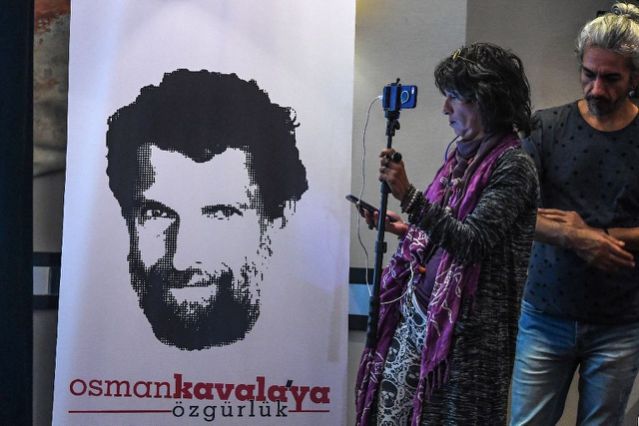SILIVRI, Turkey, June 24, 2019 (BSS/AFP) – A group of leading Turkish businessmen, academics and artists will go on trial Monday, accused of seeking to overthrow President Recep Tayyip Erdogan during the mass “Gezi Park” protests of 2013.
All 16 face life imprisonment if convicted in a case dismissed as a witch-hunt by rights activists, who say there is not “a shred of evidence” against the suspects.
The group includes prominent businessman and philanthropist Osman Kavala, whose detention since November 2017 has made him a symbol of what critics say is a crackdown on civil society.
Kavala is accused of orchestrating and financing the protests, which began over government plans to build over Gezi Park, one of the few green spaces left in Istanbul.
The protests snowballed into a nationwide movement that marked the first serious challenge to Erdogan’s brand of Islamic conservatism and grandiose development projects.
The 657-page indictment seeks to paint the protests as a foreign-directed conspiracy with links to the Arab Spring, which, ironically, the Turkish government supported.
“None of these actions were coincidental… they were supported from the outside as an operation to bring the Turkish Republic to its knees,” the indictment said.
Amnesty International’s Andrew Gardner said the trial “speaks volumes about the deeply flawed judiciary that has allowed this political witch-hunt to take place.
“(The indictment) does not contain a single shred of evidence that they were in any way involved in criminal activity, let alone conspiring to overthrow the government.
“Instead it is absurdly attempting to portray routine civil society activities as crimes,” he said.
Among the allegations is the claim that a map on Kavala’s phone showing bee species actually depicted his plans to redraw Turkey’s borders.
– ‘Political sham’ –
Monday’s hearing takes place at a high-security prison and court complex in Silivri on the outskirts of Istanbul.
Among those on trial are experts in urban planning and architecture.
Six are being tried in absentia after fleeing the country, including Turkish actor Memet Ali Alabora and dissident journalist Can Dundar.
The case against Alabora focuses on his appearance in a play featuring a revolt against the ruler of a fictional country.
But Erdogan has particularly focused on Kavala, accusing the businessman of “financing the terrorists” during the protests.
He has linked the suspects to US billionaire George Soros, whose efforts to promote democracy around the world have made him a target for several authoritarian leaders.
Last year, Erdogan said Kavala was the representative in Turkey of the “famous Hungarian Jew Soros” whom he accused of trying to “divide and tear up nations”.
Soros’s Open Society Foundation, which ceased activities in Turkey last year, called Monday’s trial a “political sham”.
“The charges in this case follow a political script that seeks to silence all critical voices in Turkey,” said Patrick Gaspard, the foundation’s president, in a statement.
“That they are now on trial, facing possible life sentences, is a tragedy.”
A respected figure in intellectual circles, Kavala is chairman of the Anatolian Culture Foundation, which seeks to bridge ethnic and regional divides through art, including with neighbouring Armenia, with which Turkey has no diplomatic ties.
Some of the suspects were already tried and acquitted for their role in the Gezi Park protests in 2015.
But there has been a renewed crackdown on dissidents since a coup attempt in 2016, blamed by the government on US-based Muslim preacher Fethullah Gulen, with thousands arrested and tens of thousands sacked from government and military jobs.



